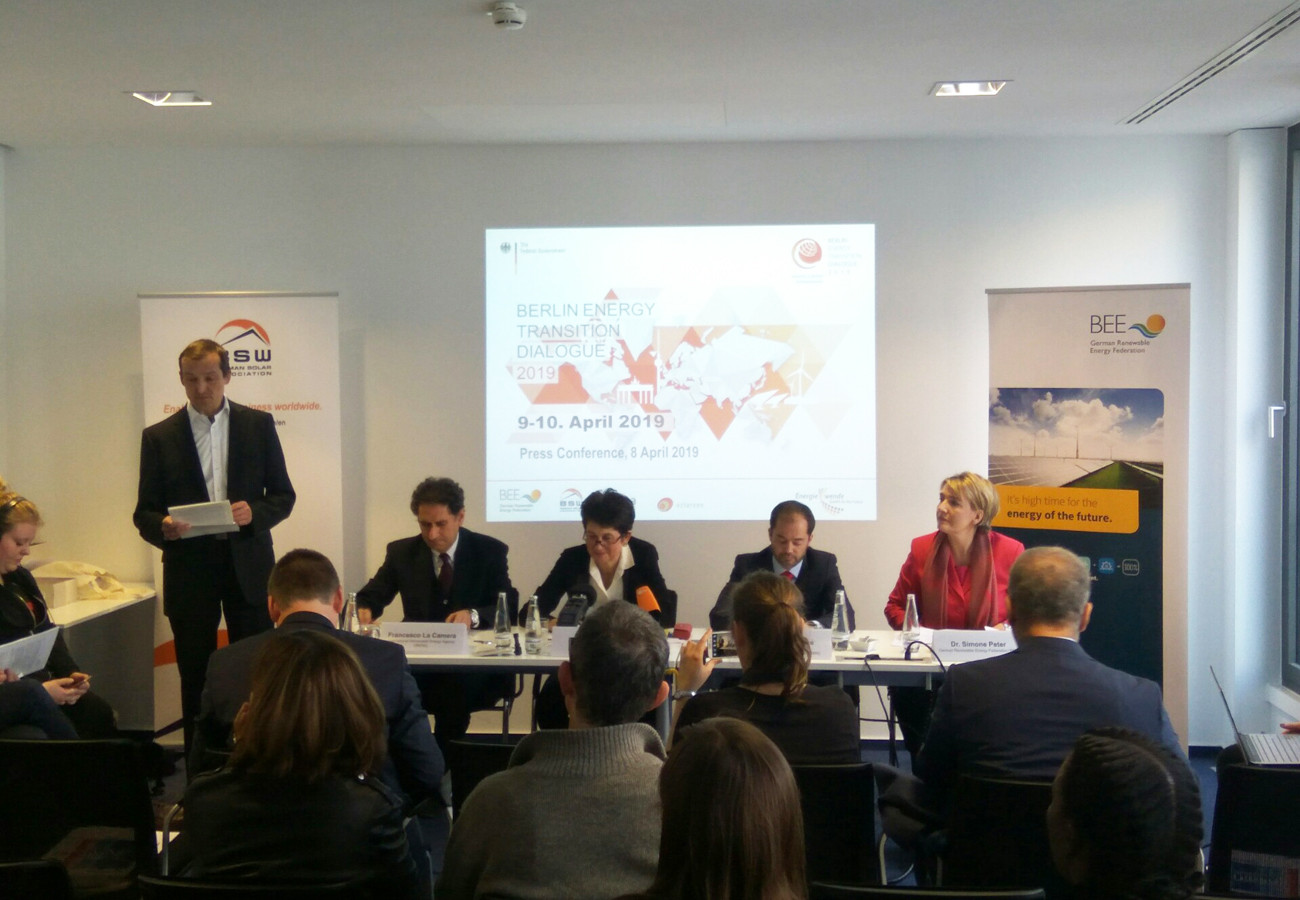Renewable-based electrification key to achieve climate change goal
Renewable energy is the most effective and readily available solution for reversing the trend of rising CO2 emissions
Change Size
 The International Renewable Energy Agency's (IRENA) newly elected director general, Francesco La Camera (third left), talks to the press on March 7 in Berlin about IRENA’s Energy Roadmap 2050 and the fifth BETD Conference. (JP/Stefanno Reinard Sulaiman)
The International Renewable Energy Agency's (IRENA) newly elected director general, Francesco La Camera (third left), talks to the press on March 7 in Berlin about IRENA’s Energy Roadmap 2050 and the fifth BETD Conference. (JP/Stefanno Reinard Sulaiman)
S
caling-up the world’s renewable energy combined with electrification could deliver more than 75 percent of the energy-related emission reductions needed to meet global climate goals, a recent study shows.
The study is the latest edition from the International Renewable Energy Agency (IRENA), which is a global intergovernmental organization that supports countries in their transition to a sustainable energy future, with a title of Global Energy Transformation: A Roadmap to 2050.
“Renewable energy is the most effective and readily-available solution for reversing the trend of rising CO2 [carbon dioxide] emissions. A combination of renewable energy with a deeper electrification can achieve 75 percent of the energy-related emission reduction needed,” IRENA’s director-general, Francesco La Camera, said Monday.
An accelerated energy transition in line with Roadmap 2050 would also save the global economy up to US$160 trillion cumulatively over the next 30 years in avoided health costs, energy subsidies and climate damages, the report further concludes.
“Every dollar spent on energy transition would pay off up to seven times. The global economy would grow by 2.5 per cent in 2050. However, climate damages can lead to significant socioeconomic losses,” La Camera further explained.
The report also warns that actions toward renewable energy were lagging as energy-related CO2 emissions continued to grow by more than 1 percent annually on average in the last five years. Meanwhile, emissions would need to decline by 70 percent below the current level by 2050 to meet global climate goals.
“Hence, the national policy should focus on zero-carbon long-term strategies and the need to boost and harness systemic innovation such as fostering smarter energy systems through digitalization as well as the coupling of end-use sectors, particularly heating and cooling and transport.” the report’s recommended.
The road map was launched Tuesday during the first day of fifth Berlin Energy Transition Dialogue (BETD), which is expected to see the attendance of 2,000 participants from 90 countries, with around 50 ministers and high-level speakers also expected to attend. (bbn)









